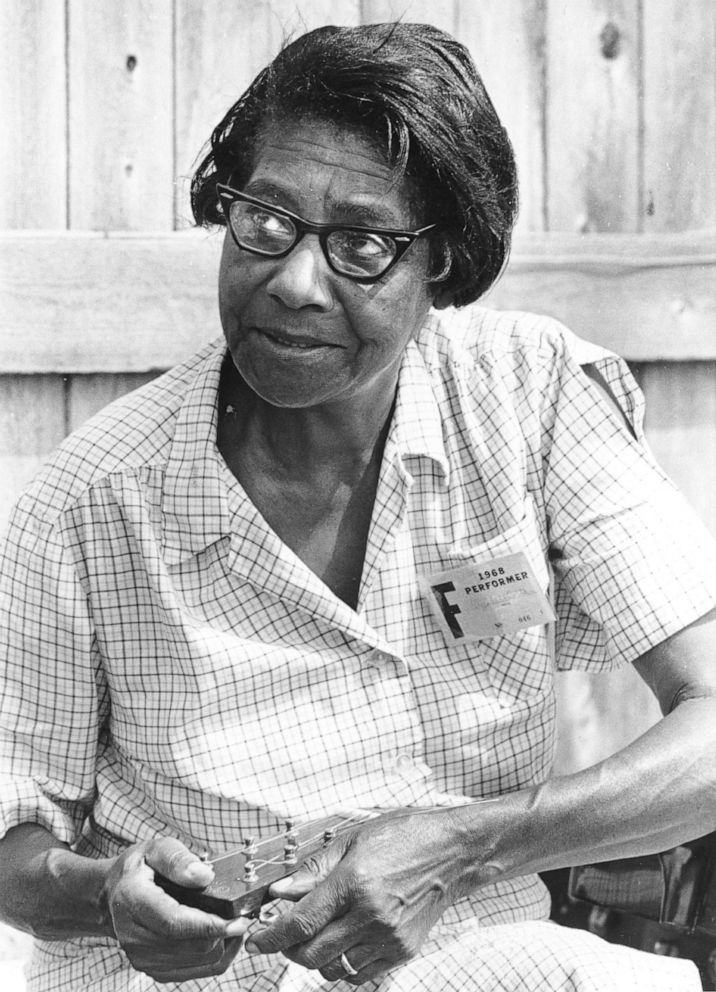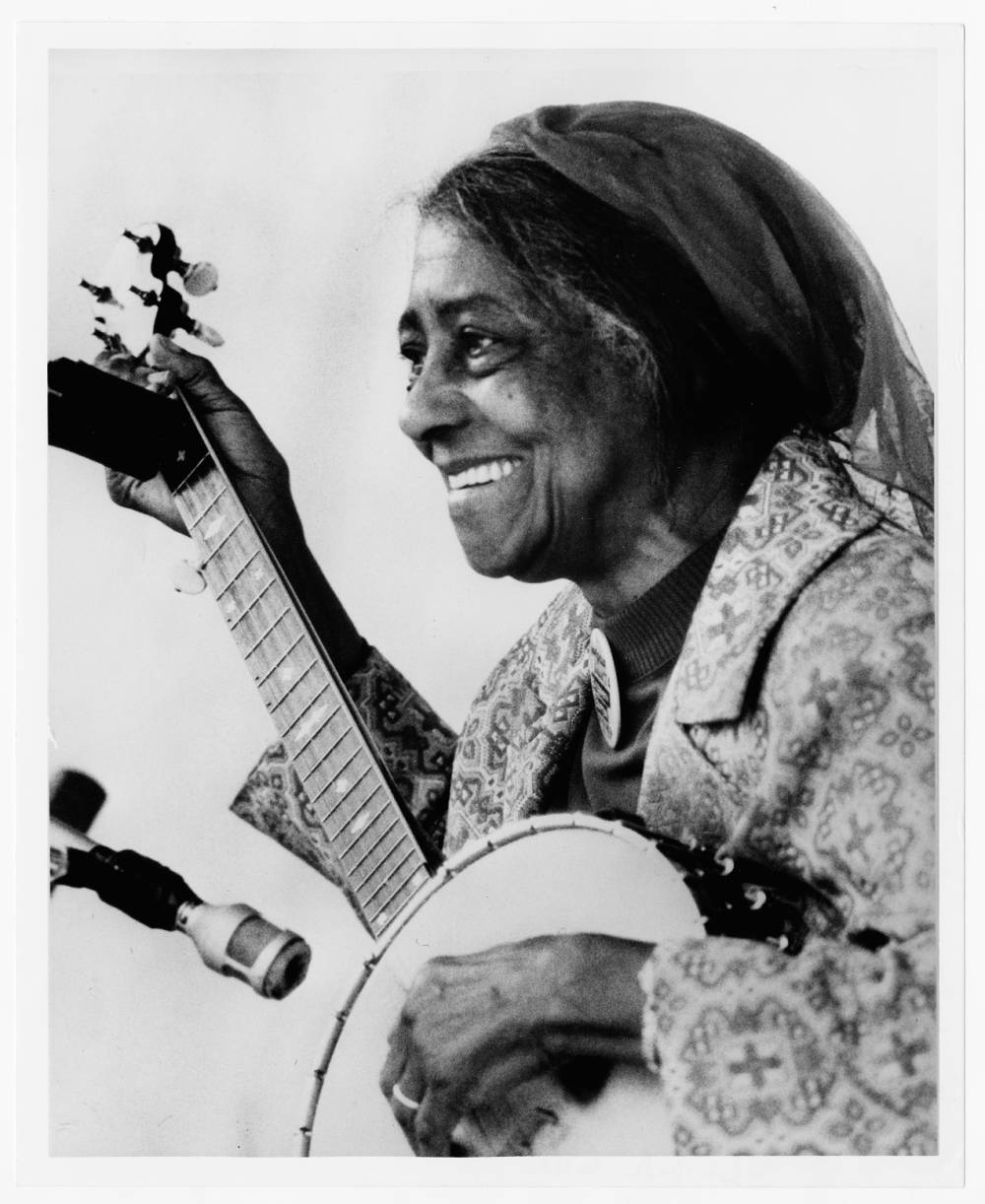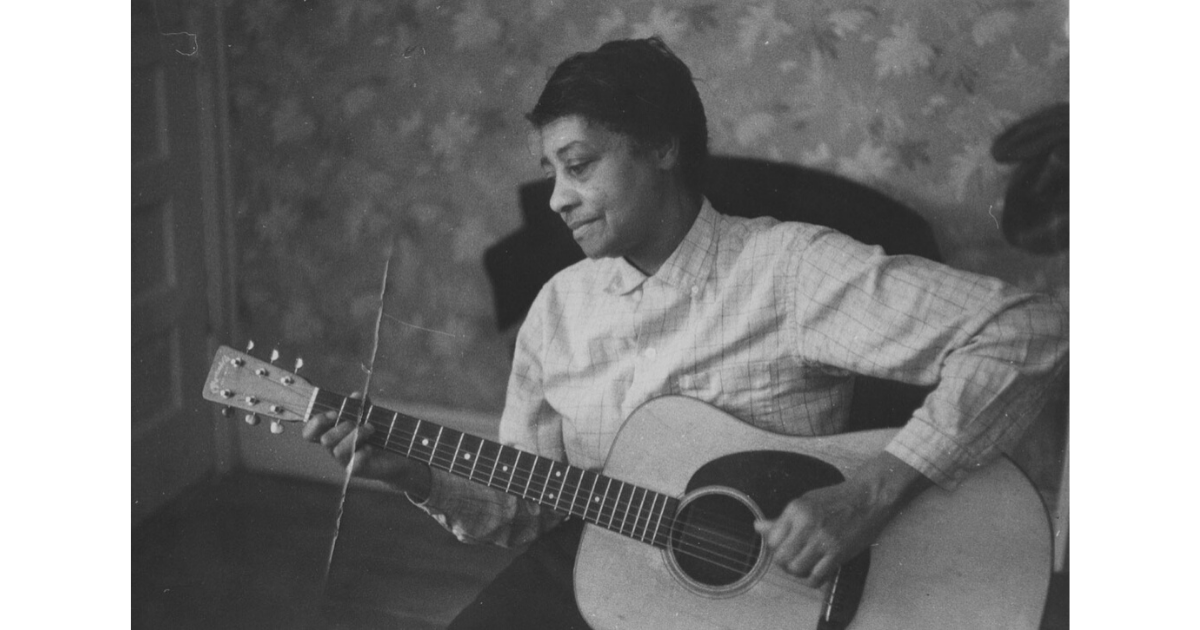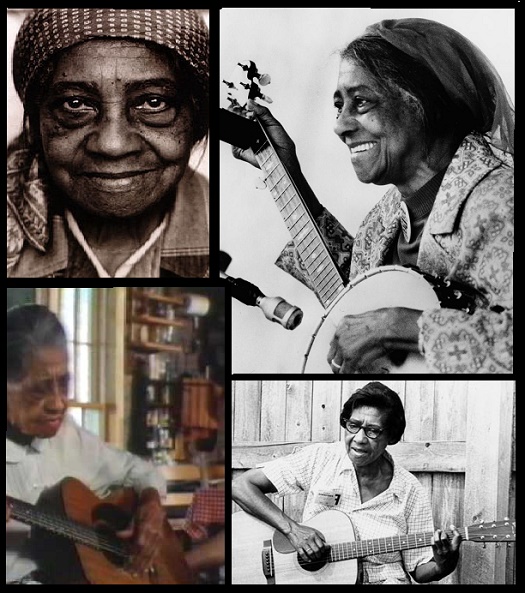
Elizabeth Cotten National Endowment for the Arts
Elizabeth "Libba" Cotten (born Elizabeth Nevills in 1893) bought her first guitar with money she saved up as a 12-year-old domestic servant earning $1 a month in Chapel Hill, North Carolina. The instrument, which she called Stella, cost $3.75, and it gave Cotten, who had been playing her brother's banjo and guitar, a chance to develop on her own.

Paula's Picture Palace — Elizabeth “Libba” Cotten (18951987), best
Elizabeth "Libba" Cotten (1895-1987) built her musical legacy on a firm foundation of late 19th- and early 20th-century African-American instrumental traditions and fine musicianship. She fretted the strings with her right hand and picked with her left, the reverse of the usual method.

This black female musician you may not know has written songs you
Born in early January 4 (or 5), 1893 or 1895, in Chapel Hill, North Carolina; died on June 29, 1987, in Syracuse, New York; daughter of George Nevilles (or Nevills, a miner and mill worker) and Louisa Price Nevilles (a cook, launderer, and midwife); married Frank Cotten, around 1910; children: daughter, Lillie (or Lily).

Elizabeth "Libba" Cotten Carrboro's Folk Treasure YouTube
Elizabeth (Libba) Cotten, who won a Grammy Award in 1985 for a collection of her blues and folk songs, died today at a Syracuse hospital. She was 95 years old. She had been hospitalized for nearly.

Making Music History Meet Elizabeth Cotten, 2019 N.C. Music Hall of
Elizabeth " Libba " Cotten ( née Nevills; January 5, 1893 - June 29, 1987) [1] [2] [3] was an American folk and blues musician. She was a self-taught left-handed guitarist who played a guitar strung for a right-handed player, but played it upside down. [4]

Ten of Blues Influential Female Guitarists Guitar Girl Magazine
Music Rhiannon Giddens on Elizabeth Cotten: 'Her Music Is in the DNA of So Much' "There are so many of those stories," Giddens says of the late folk pioneer, whose musical contributions were.

Folk Musician, Elizabeth Libba Cotten. Blues music, Rock and roll
Elizabeth "Libba" Cotten (1895-1987), best known for her timeless song " Freight Train ," built her musical legacy on a firm foundation of late 19th- and early 20th-century African-American instrumental traditions. Through her songwriting, her quietly commanding personality, and her unique left-handed guitar and banjo styles, she inspired and.

UNSUNG (Folk Edition) Elizabeth “Libba” Cotten Black Music Scholar
Celebrate American Folk and Blues musician, Elizabeth Cotten in this musical read aloud of LIBBA: The Magnificent Musical Life of Elizabeth Cotten. In this.

Elizabeth "Libba" Cotten Cotten, Music, Elizabeth
November 4, 2022 at 6:00 a.m. EDT. Blues and folk musician Elizabeth Cotten, circa 1970. (GAB Archive/Redferns/Getty Images) 12 min. A song was nagging at Libba Cotten. Most times, the melody for.

Elizabeth "Libba" Cotten Women in music, Blues musicians, Music photo
Elizabeth "Libba" Cotten will be inducted into the Rock and Roll Hall of Fame and posthumously receive the 2022 Early Influence Award. Cotten moved to Syracuse in 1978 when she was 83 years.

Elizabeth Cotten The Domestic Who Wrote a Folk Classic The Bluegrass
Libba: The Magnificent Musical Life of Elizabeth Cotten (Early Elementary Story Books, Children's Music Books, Biography Books for Kids) Elizabeth Cotten was only a little girl when she picked up.

Elizabeth "Libba" Cotten, born on this day in 1893 in Chapel Hill
The woman famous for that fingering style was Elizabeth "Libba" Cotten — a folksinger best known for the song "Freight Train," written in 1904 when she was just 11 years old. Cotten's.

Photo Uploader for Pinterest Blues musicians, Folk musician, Blues music
Elizabeth "Libba" Cotten, born on January 5, 1893, in Chapel Hill, North Carolina, was an influential American folk and blues musician. She taught herself to sing and play the guitar and left an profound mark on the folk music genre with her unique style and fingerpicking technique. At a young age, Libba learned to play her brother's guitar.

Folk and blues singer and guitarist Elizabeth 'Libba' Cotten poses
Bio Elizabeth "Libba" Cotten was born in January 1892 near Chapel Hill, North Carolina. As a child, she liked to play with her brother's banjo, and pick out tunes on the instrument "upside down." Like her brother, she was left-handed, and it was more comfortable to hold the banjo upside down so she could play it with her left hand.

A star after 60 Syracuse’s Elizabeth ‘Libba’ Cotten taught Jerry
Elizabeth "Libba" Cotten, an American folk and blues musician, made her professional debut in 1959 at the age of 67. Discovered by the musically-renowned Seeger family in the 1950s, Cotten was soon recognized for her unique self-taught guitar and banjo picking style and her songs "Freight Train," "Oh, Babe, It Ain't No Lie" and "Shake Sugaree."

Black ThenElizabeth "Libba" Cotten Renowned American Folk and Blues
Elizabeth "Libba" Cotten (1895-1987), best known for her timeless song "Freight Train," built her musical legacy on a firm foundation of late 19th- and early 20th-century African-American instrumental traditions.